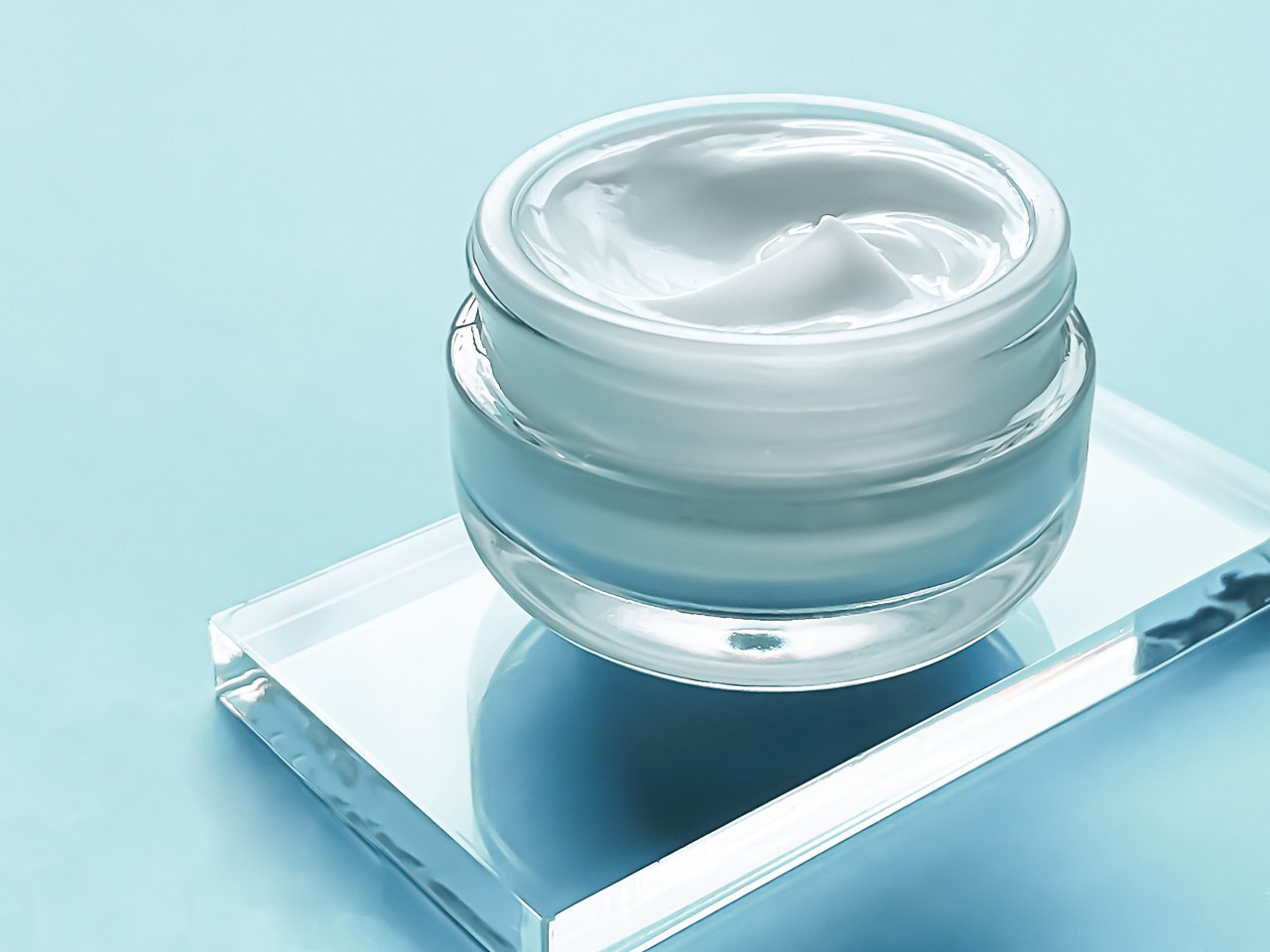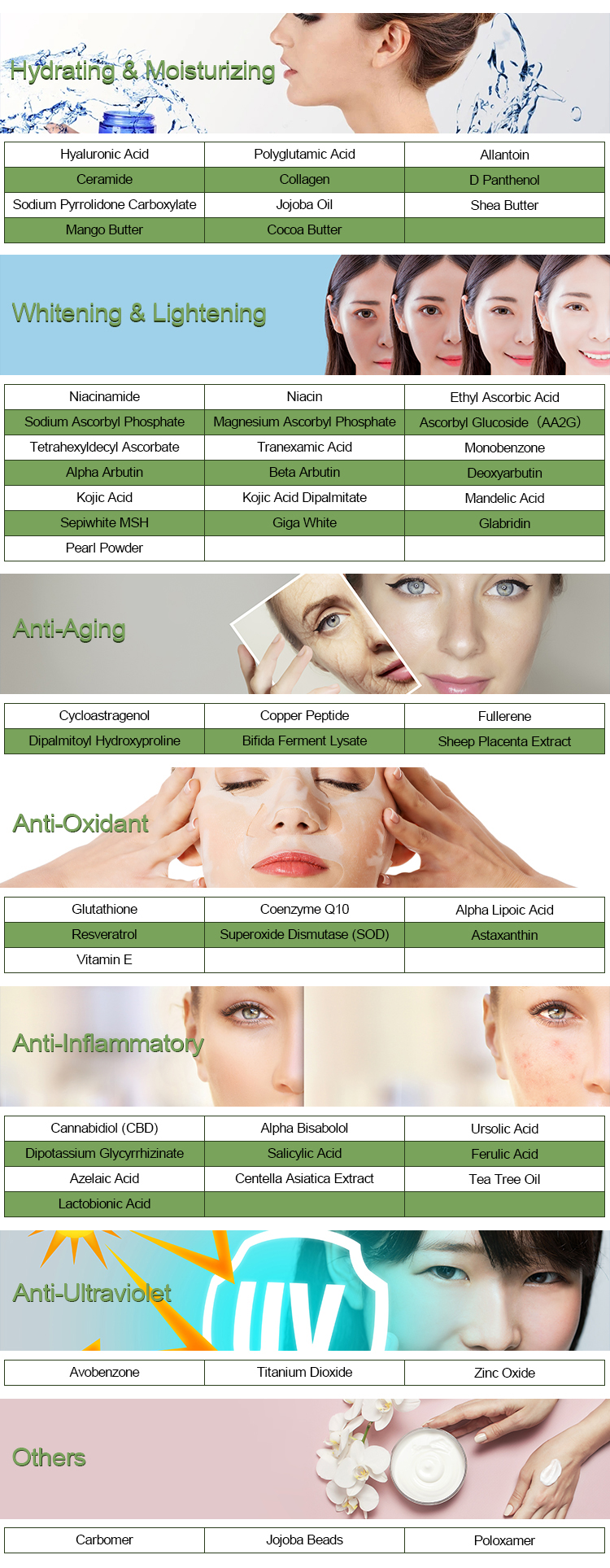Sericin is a protein obtained from silkworms, primarily derived from the waste material produced during the silk production process. It has various applications across different industries due to its unique properties and benefits.
Application of Sericin
Cosmetics and Skincare Products: Sericin is known for its moisturizing and anti-aging properties. It can be found in various skincare products like moisturizers, serums, and masks. Sericin helps improve skin hydration, reduce wrinkles, and enhance the overall texture and appearance of the skin.
Haircare Products: Sericin is used in hair care products such as shampoos, conditioners, and hair treatments. It can help strengthen hair, improve its texture, and add shine. Additionally, sericin can protect hair from damage caused by UV radiation.
Medical and Wound Healing: Sericin has been explored for its potential in wound healing. It can help in tissue regeneration and is used in medical dressings and sutures. It has anti-inflammatory properties that can aid in the healing process.
Textiles and Fabrics: Sericin can be used as a natural alternative to synthetic chemicals for finishing textiles and fabrics. It imparts a soft and smooth texture to the fabric and can be used in the production of luxury and high-quality textiles.

Biomedical and Drug Delivery: Researchers are investigating the use of sericin for drug delivery systems due to its biocompatibility. It can encapsulate drugs and release them in a controlled manner, which can be particularly useful in medical applications.
Food and Nutraceuticals: Sericin has been explored for potential applications in the food and nutraceutical industry. It can be used to create edible films and coatings for food products. These films can help preserve the freshness and quality of food items.
Agriculture and Plant Growth: Sericin can be used as a natural fertilizer and plant growth promoter. It enhances soil properties and can improve crop yield and quality.
Biodegradable Plastics: Sericin can be used to produce biodegradable and environmentally friendly plastics. These plastics have the advantage of being biocompatible and biodegradable, making them a sustainable alternative to traditional plastics.
Personal Care Products: Sericin is used in various personal care products like soaps and lotions. It provides a silky and luxurious feel to these products, making them more appealing to consumers.
Research and Biotechnology: Sericin is used in various research applications, especially in tissue engineering and regenerative medicine. It can be used to support cell growth and tissue regeneration in vitro.
It’s important to note that the applications of sericin continue to evolve as research and development in this field progress. The versatility of sericin, along with its eco-friendly and biocompatible nature, makes it an attractive ingredient in various industries.
The negative impact of the Sericin
Sericin is a protein found in silk produced by silkworms. While it has some beneficial properties, it can also have negative impacts under certain circumstances. Here are some of the potential negative impacts of sericin:
Allergies: Some individuals may be allergic to sericin. Contact with sericin-containing silk products can lead to skin rashes, itching, or other allergic reactions in sensitive individuals. This is especially common when the sericin has not been effectively removed from silk fabric during processing.
Texture and comfort: Sericin can make silk fabric feel rough or less comfortable to some people, as it can give silk a somewhat stiffer or less smooth texture compared to sericin-free silk. This can be a negative impact if you prefer the soft, smooth feel of silk.

Potential environmental concerns: Sericin removal during silk production can generate waste, and improper disposal can lead to environmental issues. While this is not directly due to the sericin itself, the process of dealing with it can have negative environmental impacts if not managed properly.
Cost: The removal of sericin from silk fabric can add to the production cost. This can make sericin-free silk products more expensive compared to those with sericin, which may be seen as a negative impact for consumers.
Inhibition of dyeing: Sericin can interfere with the dyeing process of silk, making it more challenging to achieve certain colors and patterns. This can be a drawback in the textile and fashion industry where specific dyeing requirements need to be met.
It’s worth noting that the negative impact of sericin largely depends on individual preferences and sensitivities, as well as the specific application and processing of silk. Many people find sericin to be tolerable or even beneficial in certain circumstances, as it can enhance the texture and appearance of silk. Proper processing and removal of sericin can mitigate some of its negative effects, making it a more favorable choice for those with allergies or comfort concerns.
